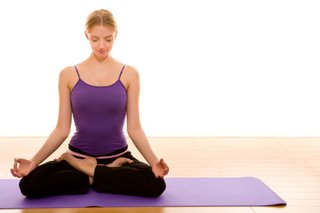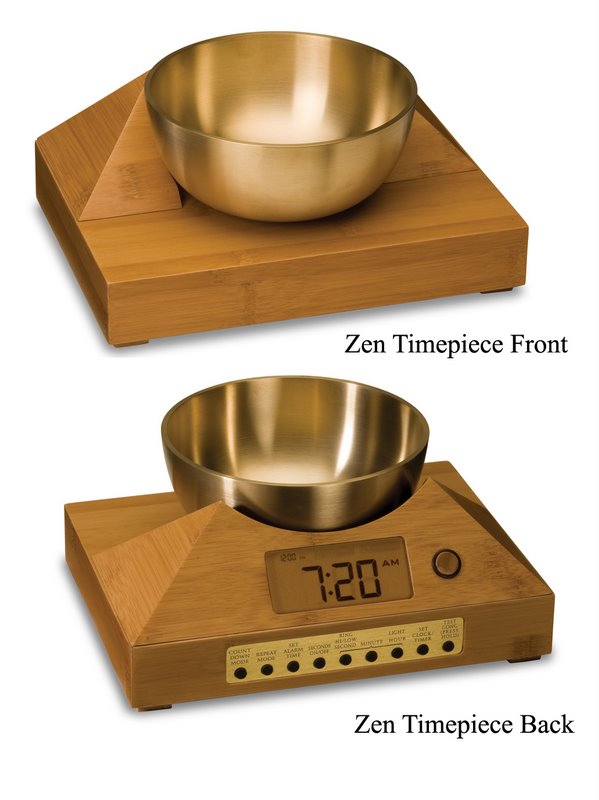
Once you experience the Zen Timepiece's progressive tones, you'll never want to meditate any other way. It serves as the perfect meditation timer. KOITSU -- Full Moon at Akashi Beach
Study authors say earlier use of such treatments might benefit health-care system
THURSDAY, May 12 (HealthDay News) — Mind-body therapies such as yoga, meditation and deep-breathing exercises appear to be gaining more acceptance in mainstream medicine, according to a new study.
Mind-body therapy is used by more than one-third of Americans, and that number is rising, the researchers noted. They found that one in 30 Americans using some type of mind-body therapy was referred to the treatment by a medical provider.
“There’s good evidence to support using mind-body therapies clinically,” the study’s lead author, Dr. Aditi Nerurkar, an integrative medicine fellow at Harvard Medical School and Beth Israel Deaconess Medical Center in Boston, said in a news release from Beth Israel. “Still, we didn’t expect to see provider referral rates that were quite so high.”
Nerurkar and her colleagues analyzed data from more than 23,000 households that took part in the 2007 U.S. National Health Interview Survey. Nearly 3 percent of the people in those households, or about 6.3 million people, used mind-body therapies after referral by a mainstream medical provider, the study found. These people tended to be sicker and used the health-care system more than people who started using the therapies without a referral.
“What we learned suggests that providers are referring their patients for mind-body therapies as a last resort once conventional therapeutic options have failed,” Nerurkar said. “It makes us wonder whether referring patients for these therapies earlier in the treatment process could lead to less use of the health-care system and, possibly, better outcomes for these patients.”
The study is published in the May 9 issue of Archives of Internal Medicine.

Once you experience the Zen Timepiece's progressive tones, you'll never want to meditate any other way. It serves as the perfect meditation timer. KOITSU -- Full Moon at Akashi Beach
“These data suggest that mind-body therapies have really become a mainstream approach to care,” Dr. Russell Phillips, chief of primary care at Beth Israel and the study’s senior author, said in the news release. “But more research is needed to guide physician and patient decision-making regarding their use.”
Meditation is generally an inwardly oriented, personal practice, which individuals do by themselves. Meditation may involve invoking or cultivating a feeling or internal state, such as compassion, or attending to a specific focal point. The term can refer to the state itself, as well as to practices or techniques employed to cultivate the state. There are dozens of specific styles of meditation practice; the word meditation may carry different meanings in different contexts. Meditation has been practiced since antiquity as a component of numerous religious traditions. A 2007 study by the U.S. government found that nearly 9.4% of U.S. adults (over 20 million) had practiced meditation within the past 12 months, up from 7.6% (more than 15 million people) in 2002.
Although meditation can be done in almost any context, practitioners usually employ a quiet, tranquil space, a meditation cushion or bench, and some kind of timing device to time the meditation session. Ideally, the more these accoutrements can be integrated the better. Thus, it is conducive to a satisfying meditation practice to have a timer or clock that is tranquil and beautiful. Using a kitchen timer or beeper watch is less than ideal. And it was with these considerations in mind that we designed our Gong Meditation Timer. This unique “Zen Clock” features a long-resonating acoustic chime that brings the meditation session to a gradual close, preserving the environment of stillness while also acting as an effective time signal. The Digital Zen Clock can be programmed to chime at the end of the meditation session or periodically throughout the session as a kind of sonic yantra. The beauty and functionality of the Gong Meditation Time/Clock makes it a meditation tool that can actually help you “make time” for meditation in your life.
More information: The U.S. National Institutes of Health has more about mind-body therapy. — Robert Preidt
SOURCE: Beth Israel Deaconess Medical Center, news release, May 9, 2011

The Gong Meditation Timer Shop, Boulder, Colorado
Now & Zen – The Gong Meditation Timer Store
1638 Pearl Street
Boulder, CO 80302
(800) 779-6383
orders@now-zen.com

Once you experience the Zen Timepiece's progressive tones, you'll never want to meditate any other way. It serves as the perfect meditation timer.
Posted in Meditation Timers, Meditation Tools